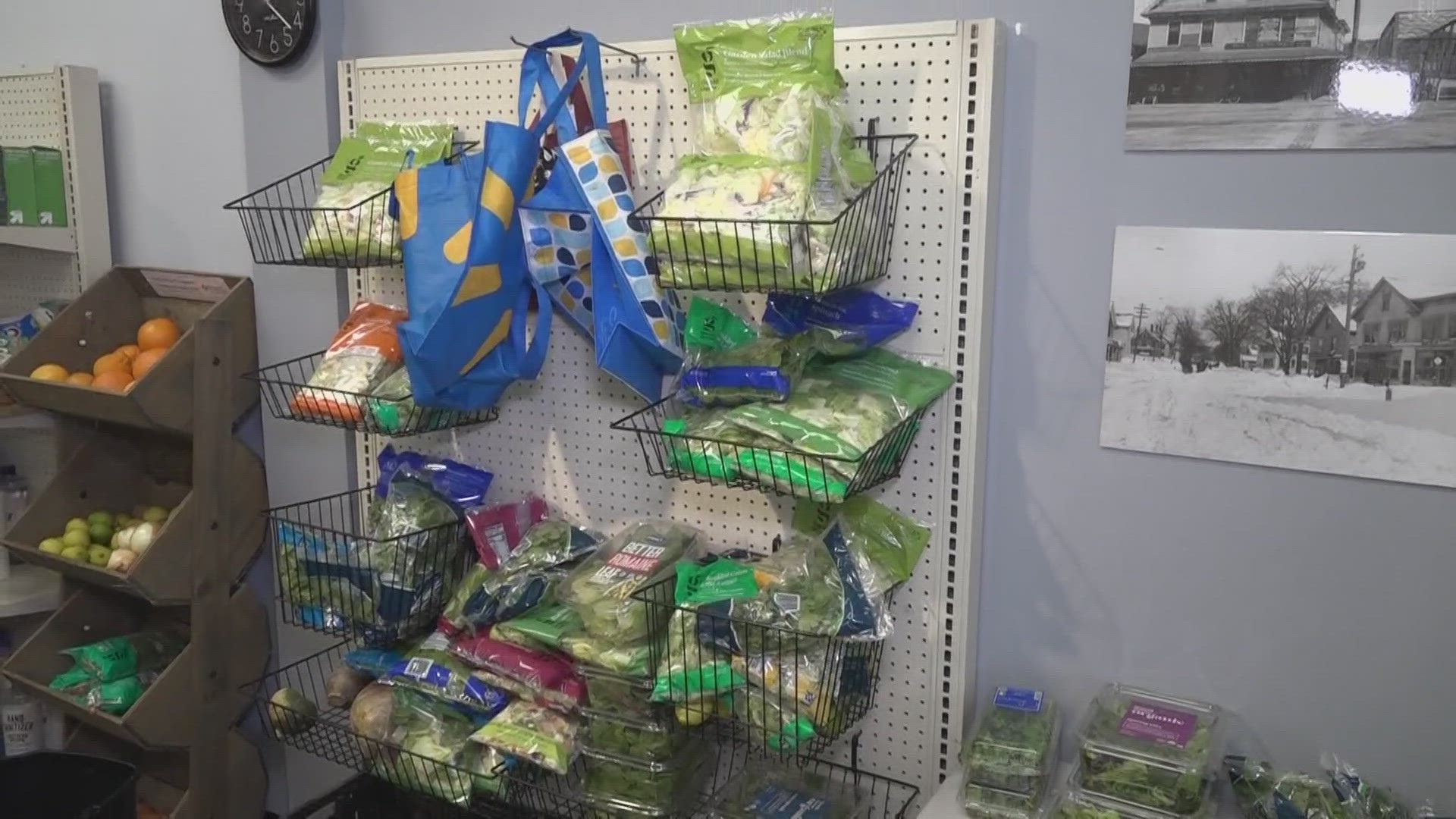BANGOR, Maine — Families in Maine have been hit hard with recurring storms and extensive power outages this winter, and while some suffered extensive property damage, others lost weeks, even months' worth of food and groceries.
Amy Regan Gallant, Good Shepard Food Bank's vice president of public policy said, that after back-to-back storms, recovery for some families is less about repairing roofs or restoring flooded basements, and more about picking up a box of food at a local food pantry.
"You can't rebuild with empty bellies," Gallant said. "The storm last month...a lot of people saw the impact of the power outages. Pantries stepped in and stepped up and made sure that people had what they needed."
Gallant said Good Shepard partners with over 600 organizations and food pantries to source and distribute food throughout the state.
"Each one of them are going into their communities and saying 'there was a flood here and damage here. Let's get food this way — alright, there was a snowstorm that took down a tree here. How do we get down that road?'" Gallant said.
Penobscot County Emergency Management Agency Deputy Director Chris Fox said when families can't recover the food they lose in a storm, food pantries like Brewer Area Food Pantry lend a helping hand.
"Some people during these events, some of these disasters, might have to take part in those resources that [they] normally wouldn't have to," Fox said.
Brewer Area Food Pantry Director Jessica Gibby said at her facility, the food goes from the truck to the pantry fridge, and then into the hands of families who need help the most.
"We do emergency boxes if they've lost their whole fridge and freezer and have just been decimated," Director of the Brewer Area Food Pantry Jessica Gibby said, through a partnership with Good Shepard.
Gibby said they are able to serve more than 300 families in the area.
"Food is always going to be important," Gibby said. "You have to have it in order to help grow and thrive [in] your community. You've got to be able to take away that meal gap."
Bangor area homeless shelter kitchen coordinator Jim Batchelder said despite misconceptions — families who are part of the working class still need extra support.
"We have a lot of families that don't qualify for food stamps that still need assistance," Batchelder said.
Gallant said societal stigmas that position food insecurity as an individual failure rather than a system failure often make people shy away from seeking the support that they need — even after taking losses caused by natural disasters.
"If the roof on that house blew off in a storm — I don't know that the response would be 'that homeowner built a weak roof,'" Gallant said. "If that individual doesn't have food for dinner there's still this public narrative that shows up in policy, that shows up in public narratives and everywhere, right, that that person didn't make the right choices to put food on their table tonight."
Penobscot County Emergency Management Agency said the county has completed an initial damage assessment and the agency is now working with state and municipal partners to determine costs for widespread repairs.

